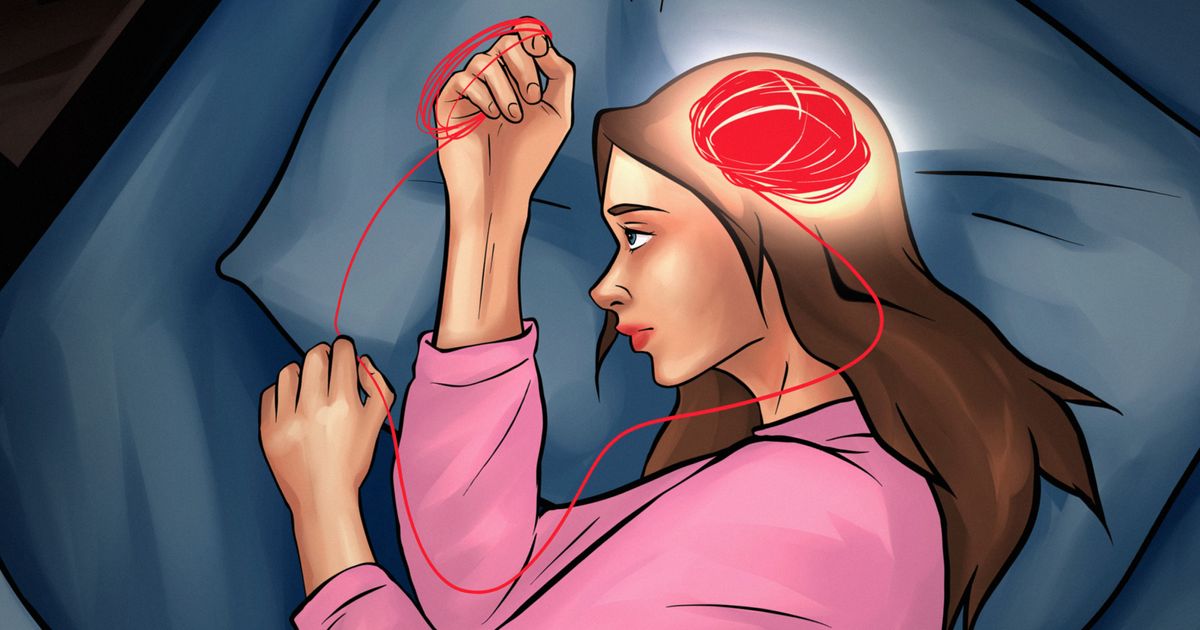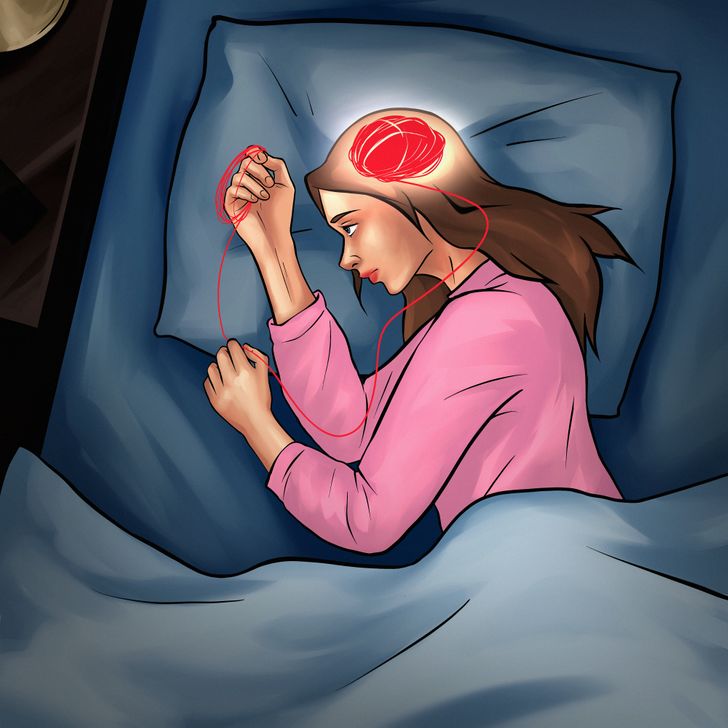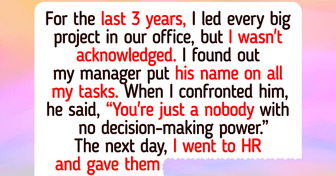10 Moments That Prove Kindness Prevails Even in an Unfair World


Here it comes again. You lie in your bed with your eyes wide open, and thoughts start running through your head at the speed of sound. A relaxing bath, a glass of warm milk, counting sheep — nothing helps you to jump off this crazy carousel of thoughts. Even those of us who have no sleeping problems can sometimes feel anxious or stressed out, and that’s when our racing minds attack us. But don’t worry, there are ways to win back your sound sleep.
We at Bright Side gathered a bunch of tips and tricks that can help you tame your thoughts and fall asleep faster, and we hope you can choose those that suit you the best.

The thoughts that don’t let us fall asleep are often connected with the past or the future. We worry about what can possibly happen, or regret doing or not doing things in the past. If this is what happens to you, try to focus on what is going on right here, right now. While we can’t change the past, nor can we predict the future, the present moment is something we can control, and this change of focus can give us the relaxation our brains need.
Using phones, laptops, and tablets before going to sleep can raise the level of anxiety and stress, especially if you read or watch the news or other things that make you worry or keep your brain busy. Besides, the light from these electronic devices badly affects the melatonin production in your body, making falling asleep even harder.
Now that you’ve put away your gadgets, you can think of some healthier alternatives. You can try a calming hobby or a relaxing activity that suits you best, like reading, using a coloring book, listening to music, going for a walk, or cooking — just to name a few. When you can’t fall asleep because of your racing thoughts, doing a relaxing activity will help you shift the focus from these thoughts and the fact that you can’t fall asleep to something more pleasant.
Just like you schedule a time to go shopping, meet up with your friends, or do household chores, you can try planning 15 to 30 minutes in the day for your worries. Devote this time to the thoughts that are bothering you and, chances are, they won’t come back later in the evening. During this “worrying time,” write down your stressful thoughts on paper and think of some practical steps you can take to tackle the issue that worries you. Be persistent and try making this technique part of your routine to achieve better results.
Lavender essential oil is often used in aromatherapy for stress relief, relaxation, and better sleep. You can sprinkle a couple of drops on a towel or cloth, or add some oil to your bath. Essential oils can cause allergic reactions, so be careful when using them.
You can use this relaxation technique right in your bed. One by one, tense and relax your muscles, moving from the toes to the head. This exercise will help you relax strained muscles and force you to focus on these parts of your body, which will distract your attention from any racing thoughts.
Instead of trying and failing to fall asleep, get out of bed and do something. Drink some tea, read a book, or write in your journal, and go back to bed when you start feeling sleepy. Staying in bed and forcing yourself to sleep can make your brain associate bed with insomnia and worries, turning your bedroom into a place where it’s hard to sleep.
We know we’ve already recommended getting rid of all your gadgets before bedtime, but if nothing helps, your favorite TV show can work as the distraction your brain so desperately needs. The light that the TV emits is farther from your eyes than the one that comes from your phone, so it’s less harmful to your sleep hygiene. In fact, many of us can easily fall asleep just listening to the TV with our eyes closed.
Racing thoughts are often connected with stress, and stress makes our hearts beat faster and increases our breathing rate. Slow, deep breathing can help you calm down and quiet your thoughts. You can also try other breathing exercises and techniques that you can practice anytime to prevent stress and anxiety.

We hope that these tips and tricks can help you fall asleep faster the next time you have racing thoughts. But if nothing helps or if you feel that your racing mind might be connected to some medical or psychological condition, it’s important to see your doctor to find a treatment that will help you.

Have you ever experienced racing thoughts that didn’t let you sleep? Can you share any tips that helped you fall asleep faster when it happened? Tell us in the comments!











